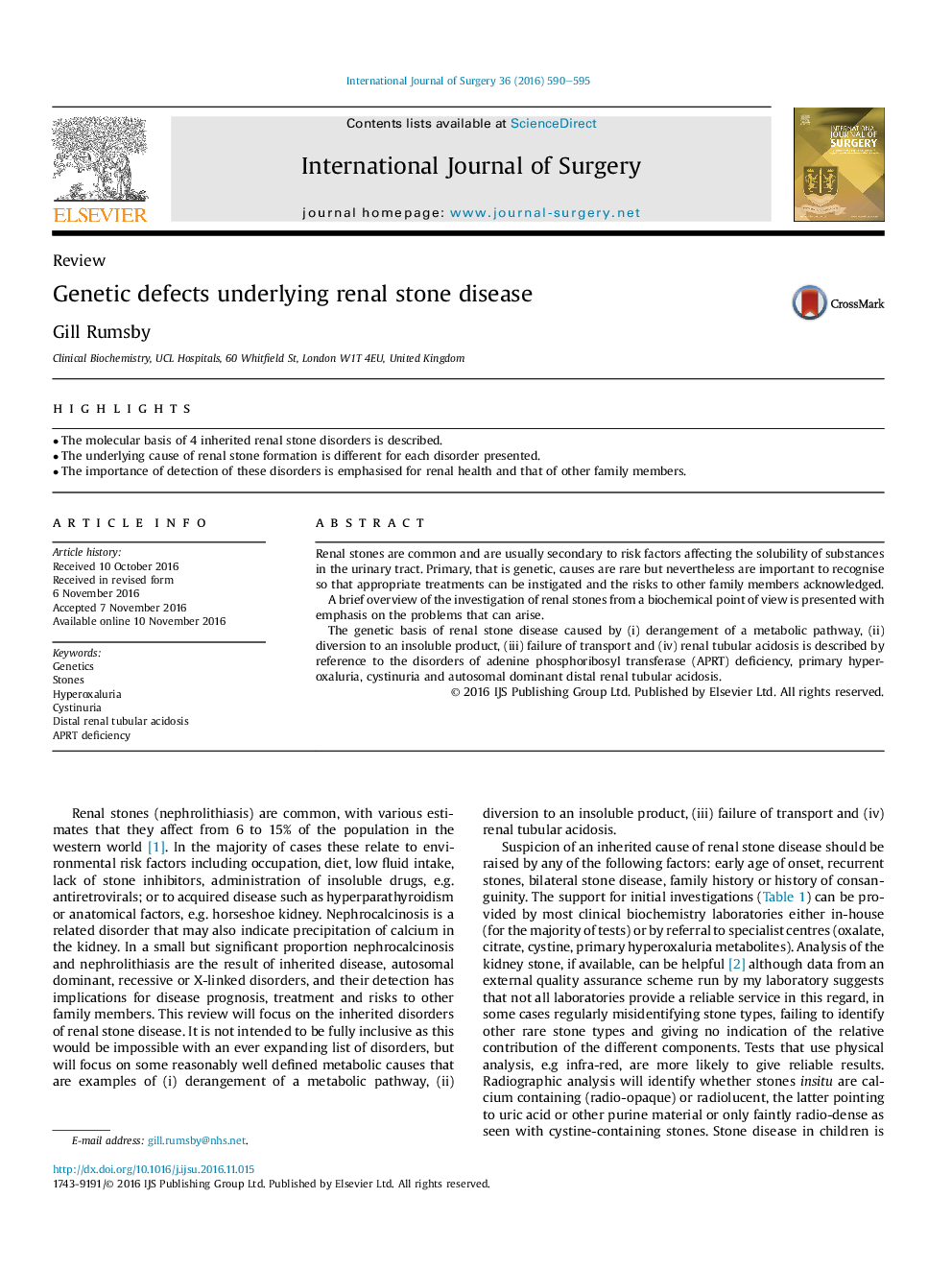| Article ID | Journal | Published Year | Pages | File Type |
|---|---|---|---|---|
| 5732422 | International Journal of Surgery | 2016 | 6 Pages |
â¢The molecular basis of 4 inherited renal stone disorders is described.â¢The underlying cause of renal stone formation is different for each disorder presented.â¢The importance of detection of these disorders is emphasised for renal health and that of other family members.
Renal stones are common and are usually secondary to risk factors affecting the solubility of substances in the urinary tract. Primary, that is genetic, causes are rare but nevertheless are important to recognise so that appropriate treatments can be instigated and the risks to other family members acknowledged.A brief overview of the investigation of renal stones from a biochemical point of view is presented with emphasis on the problems that can arise.The genetic basis of renal stone disease caused by (i) derangement of a metabolic pathway, (ii) diversion to an insoluble product, (iii) failure of transport and (iv) renal tubular acidosis is described by reference to the disorders of adenine phosphoribosyl transferase (APRT) deficiency, primary hyperoxaluria, cystinuria and autosomal dominant distal renal tubular acidosis.
